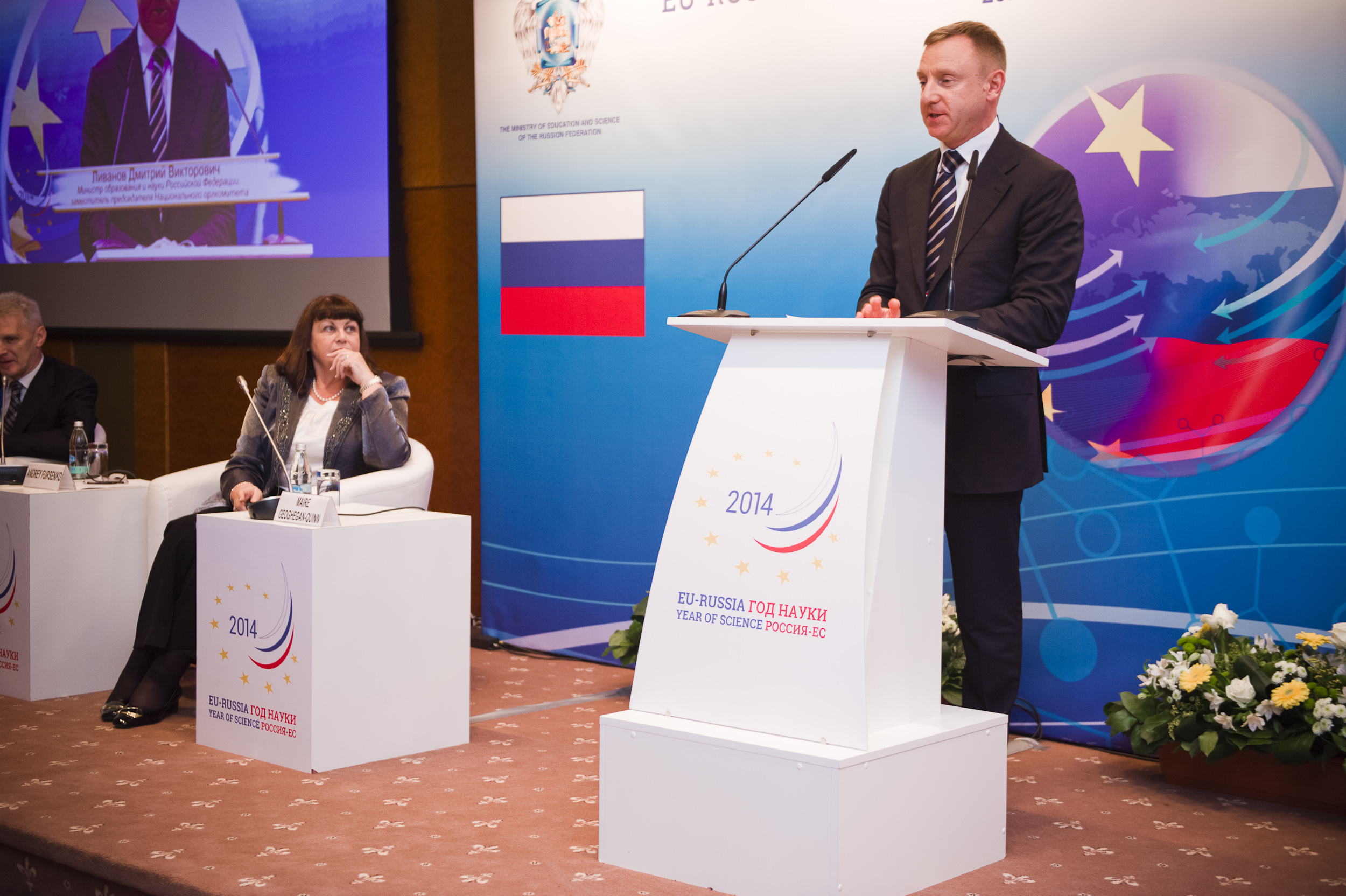EU-Russia Year of Science 2014 opens in Moscow

Opening event of EU-Russia Year of Science with science minister Dmitry Livanov and European Commissioner Máire Geoghegan-Quinn
© EU Delegation
(18.12.13) The EU-Russia Year of Science 2014 was launched between 25 - 27 November 2013 with a series of events in Moscow. The guests at the official opening ceremony included Deputy Prime Minister Olga Golodets and the European Commissioner for Research, Innovation and Science, Máire Geoghegan-Quinn. Other events included a conference on the strategic partnership between the EU and Russia in the areas of science, technology and university education and the launch of ERA.Net RUS Plus.
At the 30th EU-Russia summit in Brussels in December 2012, the heads of state and government agreed to make 2014 a joint year of science. This decision reflects the importance of the scientific partnership: Russia was by far the most important third country in the EU's 6th and 7th Framework Programmes for Research. In total, 468 Russian institutions participated in 298 EU collaborations and received third-party funding amounting to €66 million. At the events, the representatives of the European Commission outlined the EU Research and Innovation programme Horizon 2020, which gets underway in 2014. But there are also new opportunities for collaboration on the Russian side, which were presented by the Ministry of Education and Science in its federal programmes of aims for 2014-2020.
The Deutsche Forschungsgemeinschaft (DFG, German Research Foundation) has been promoting the integration of Russia in the European research area for many years, as demonstrated by the numerous examples cited in the presentations given by researchers and administrators at the launch events. In addition to regular consultations and events in both Germany and Russia, the DFG issues joint calls for proposals with its Russian partner organisations RFFI (Russian Foundation for Basic Research) and RGNF (Russian Foundation for the Humanities and Social Sciences).